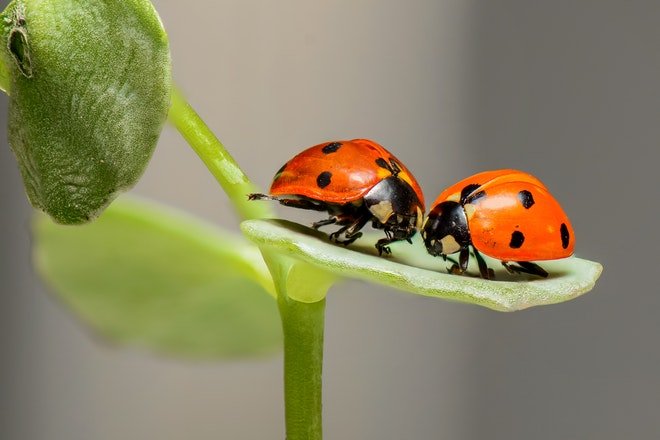Protecting Your Landscape from Insects
Insects can cause significant damage to your landscape. This damage can result in costs to treat the damage or replace damaged plants. Managing insect pests is a very important part of landscape maintenance, and requires that you take an active role in protecting your plants and caring for them. Be sure to know what you are dealing with beforehand, and ensure that you are adequately prepared to combat insect pests, whether you use natural methods or synthetic methods.
The first thing that you need to recognize is that not all insects are pests. Some of them (like bees) actually provide helpful services and are part of a thriving ecosystem in your yard. Additionally, different insect pests cause different problems, and they should be treated differently. It is possible to treat most insects with pesticides, but it is important to note that when one uses these chemical solutions, they rarely distinguish between helpful insects and pests, and may kill insects that do no harm. If you can identify the pest that is causing a specific problem, then you can more effectively treat it using targeted methods of eradication.
For the best possible health to your landscape, prevention is the best way to avoid insect pests. There are many non-chemical management techniques that can be used to help prevent unwanted insects from even causing a problem.
The best treatment is to keep plants in general good health. Healthy plants are more resistant to the vagaries of insect pests, and they will stand up to harsh measures if they have to be taken. Below are some general guidelines to help you have the healthiest possible plants and to help your landscape increase its defense against insects:
Choose your plants carefully. Make sure that they match the site in terms of soil type, drainage and sunlight received. Also select plants that are compatible with the climate in your region.
Plant varieties that are resistant to common pests. For instance, paper birch is especially susceptible to bronze birch borers, and may fall victim to these pests. Choose plants that are hardy and not often affected by the run of the mill insect.
Promote diversity by selecting plants that are resilient to different pests. Also, planting a variety of vegetation in your landscape can lead ensure that even if one particular plant is ravaged, that your entire landscape will not suffer. Diversity protects.
Promote the general health of your plants through proper care. Make sure that you follow a schedule of watering, pruning, mulching, and fertilizing. This will help the plants remain in good health.
Encourage natural enemies in the insect world. Insects eat other insects, and if you promote competition in that way, the populations will remain lower, and there will be less focus on your plants. A wide variety of flowering plants that bloom at different times throughout the growing season are especially good at encouraging natural enemies.
Monitor your plants regularly to ensure that an infestation does not have time to strengthen and take root.
This way you can take care of the problem immediately. Some non-chemical methods that work very well in controlling insects are things like hard water sprays to keep aphid populations in check and cardboard or metal rolls that protect against cutworms. If the damage is not severe, it is possible to take no action against them, but this does carry with it a risk: it could become severe if not properly treated.
If you feel that using an insecticide is the only way to eliminate a pest problem that you have, be sure to use such chemicals with care. Determine whether the use of the pesticide will actually prevent significant damage from occurring. Try to treat the plants before the damage has occurred, so that the plant recovers better.
If the insects have moved on, there is no reason to treat the plant, especially if damage has already occurred. The chemicals will affect the plant as well as the pests. Make sure you carefully read the label prior to buying your insecticide, and be sure to read the instructions before using. Also be concerned about how much you use. Too much insecticide can cause damage to your health, as well as to the health of your plants.











